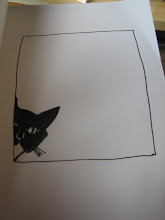I attended a talk by Vikram Seth last year, and was utterly smitten with his writerly charm, wicked sense of humour and his ability to still make coherent sense after consuming a whole bottle of red wine on the LSE stage. It made me want to re-read A Suitable Boy, and to find Beastly Tales, a compendium of grisly and funny poems Seth wrote about animals that I desperately want to read to my children, when I have them. The first I've now accomplished, the second I've yet to do.
I read A Suitable Boy when I was finishing my A-levels. I was utterly engrossed and finished it in a matter of a fortnight. (I also dropped it onto my breakfast plate, and broke it. The plate. The book is very hardy indeed). Having discovered that a sequel, A Suitable Girl is coming out (in 2013!), I thought now would be a good time for a return visit to Seth's 1950s' India.
Seth has mentioned that returning to Lata's world was like meeting old friends again. And that's how I initially felt when I started re-reading ASB. In fact my memories of my feelings when reading it the first time came rushing back - and I felt the same fondness for Amit, the same affectionate irritation with Lata's mother's sentimentality, and the same crush on Firoz.
But this time, it took me over three months to read it (in my defence I did read a few books in between!) I was conscious that as with Middlemarch, my impatient teen-self skipped some of the long political passages (the shame) and I think most of the details of the land reforms Seth painstakingly outlines eluded me. So I took my time, and concentrated.
As a 17 year old, I had felt the injustice of Lata and Kabir's forced separation due to religion very keenly. (I had a bit of a crush on Kabir, too...) But somehow, this time, Kabir seemed like a cipher of a character. Everything about him was good and plausible, and yet, somehow he was blank. I thus shrugged my shoulders at their separation this time, rather than weeping (I was even more given to weeping as a teenager). And although I understand the point of Seth's intricate detailing of politics, after a while, I once again felt the urge to skip passages. This time, however, I think this was due to the book's fictionalisation of history - it was hard to care about a made-up town, made-up riots, made-up political rivalries. The narrator's ironic detachment compounded this. I think it would have been more effective if it had been an orthodox historical novel, and had much more political power.
I also realised that the structure and substance of this novel - despite its volume - is flimsy. Each 4-5 page section is a vignette, with its own symbolic values and codes, yet beyond plot developments there are few aesthetic or symbolic strands that connect them. It's not a complex novel, just a big one. It's a lot of fun, definitely, and at points observations regarding the tensions between the secular and communa,l and the suffering of Dalits under pre-land reform conditions, are sobering. But overall, it is frivolous, whimsical, and lightweight. Even, occasionally, irritating. (The throwing together of classical music, poetry and mathematics made me want to roll my eyes, so clearly did Seth want this novel to be a mixture of All His Favourite Things).
But still, my favourite parts - the parts set in Calcutta, and amongst Meenakshi's eccentric family, - are still my favourites. (But that might be because I'm still Bengali). And I enjoyed it enough to see it through to its 11??th page, unlike Bartimaeus who gave up in irritation and disgust.
Of course, I will read A Suitable Girl when it comes out (and I look forward to it). But I don't think I'll be revisiting A Suitable Boy again anytime soon. He's just not right for me anymore.
Find me on Instagram!
2 days ago


No comments:
Post a Comment